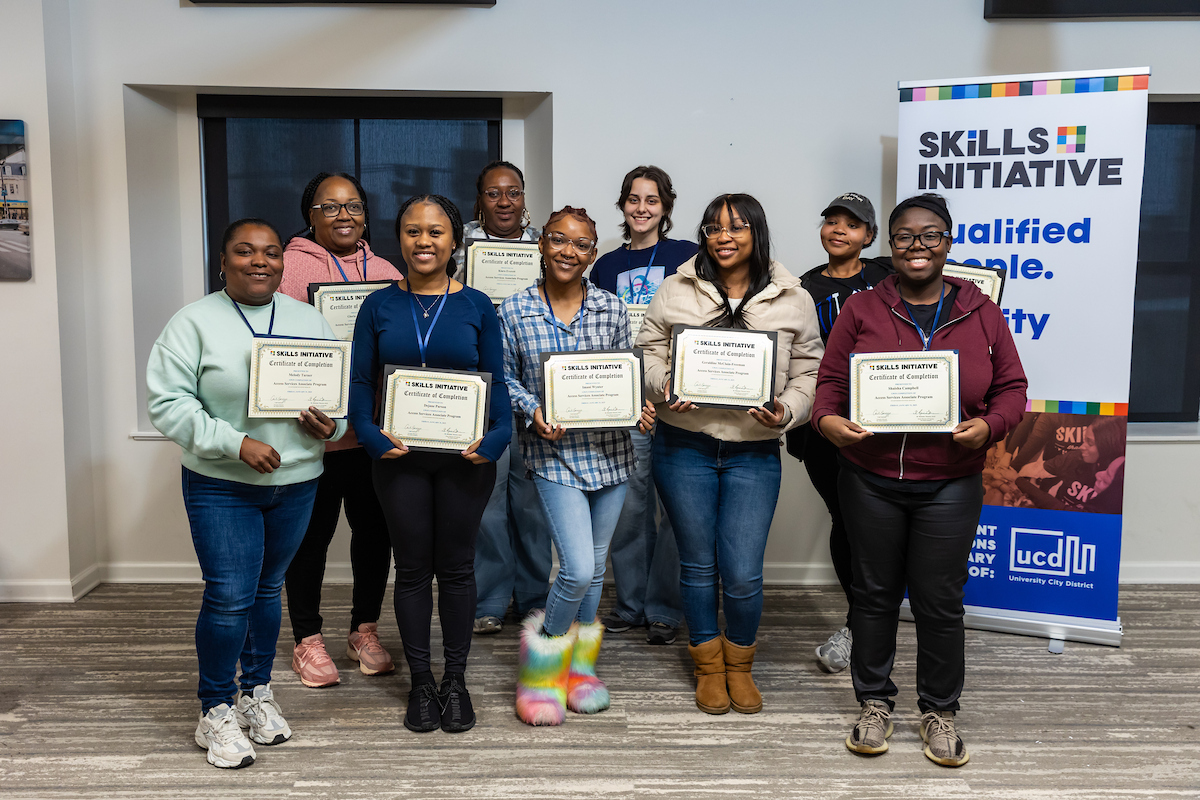Five organizations with connections to the region’s life sciences industry have united to launch a biotech technician training program aimed at connecting people from disadvantaged communities with jobs that don’t require a college degree.
The 22-week paid program – called “Biomedical Technician Training Program: Aseptic Manufacturing” — is a result of a collaboration involving the Wistar Institute, West Philadelphia Skills Initiative, Iovance Biotherapeutics (NADAQ: IOVA), PIDC, and the Chamber of Commerce for Greater Philadelphia.
“What we’re hoping to do is to become an exemplar of how you can do workforce equitably, inclusively, collaboratively, in a way that helps Philadelphians connect to high-quality jobs and supports the cell and gene therapy industry,” said Cait Garozzo, managing director at the West Philadelphia Skills Initiative.
The program will feature:
- Class- and lab-based training provided by the Wistar Institute;
- Professional development from University City District’s West Philadelphia Skills Initiative;
- A 10-week externship at Iovance Biotherapeutics, a California company developing novel T cell-based cancer immunotherapies that last year opened a cell therapy manufacturing plant at the Philadelphia Navy Yard.
Recruitment for the pilot program, which is scheduled to begin Sept. 22 and conclude in March 2023, began Wednesday. Eighteen people will be selected.
Participants, who must have at a least a high school equivalency, will gain skills needed to become an associate aseptic manufacturing technician, a job that offers starting pay of $23 an hour. Associate aseptic manufacturing technicians are responsible for maintaining a sterile lab environment, assembling sterile products, stocking supplies, and documenting processes of biomedical manufacturers in supporting the creation of cell therapies.
The program is modeled after Wistar’s technician training program that the institute has had in place for more than two decades.
“This expansion of our proven program is perfectly aligned with one of the pillars of our strategic plan to create a diverse, inclusive life science talent pipeline,” said Dr. Dario Altieri, CEO of the Wistar Institute.
Tracy Winton, senior vice president for human resources at Iovance Biotherapeutics, said the company is committed to promoting inclusivity, equity and diversity within the life sciences industry. “We are excited to help introduce a wider range of Philadelphians to career options in biotech and hope this new program can serve as a model to our industry peers to increase inclusivity and career development opportunities.”
The Philadelphia region is now home to more than 50 cell and gene therapy companies. The local cell and gene therapy sector attracted $3 billion in investment last year. Currently, the region has more than 9 million square feet of existing space and 2.7 million square feet under construction to support the sector’s growth.
The program’s launch comes about two months after the release of a workforce talent study for the region’s cell and gene therapy sector, which was conducted by Econsult Solutions for the Chamber of Commerce for Greater Philadelphia’s CEO Council for Growth and the University City Science Center.
The study found nearly 10,500 people in the area work at cell and gene therapy companies or at contract manufacturing organizations, biopharma companies, research organizations, or research hospitals in the cell and gene therapy fields. The number represented a 127% increase from the job total calculated in a similar study conducted in 2020.
The report was done as part of the CEO Council’s Cell & Gene Therapy Initiative, which is seeking to leverage the region’s specialized assets in the life sciences industry to accelerate growth and promote the region as the global hub of research, talent, capital, and companies in cell & gene therapy, gene editing, and connected health.
The study concluded that while the Philadelphia region will likely maintain its position as a leading cell and gene therapy research and development hub, it will increasingly become a commercialization and manufacturing center — creating job opportunities at all levels, including those not requiring a four-year degree.
